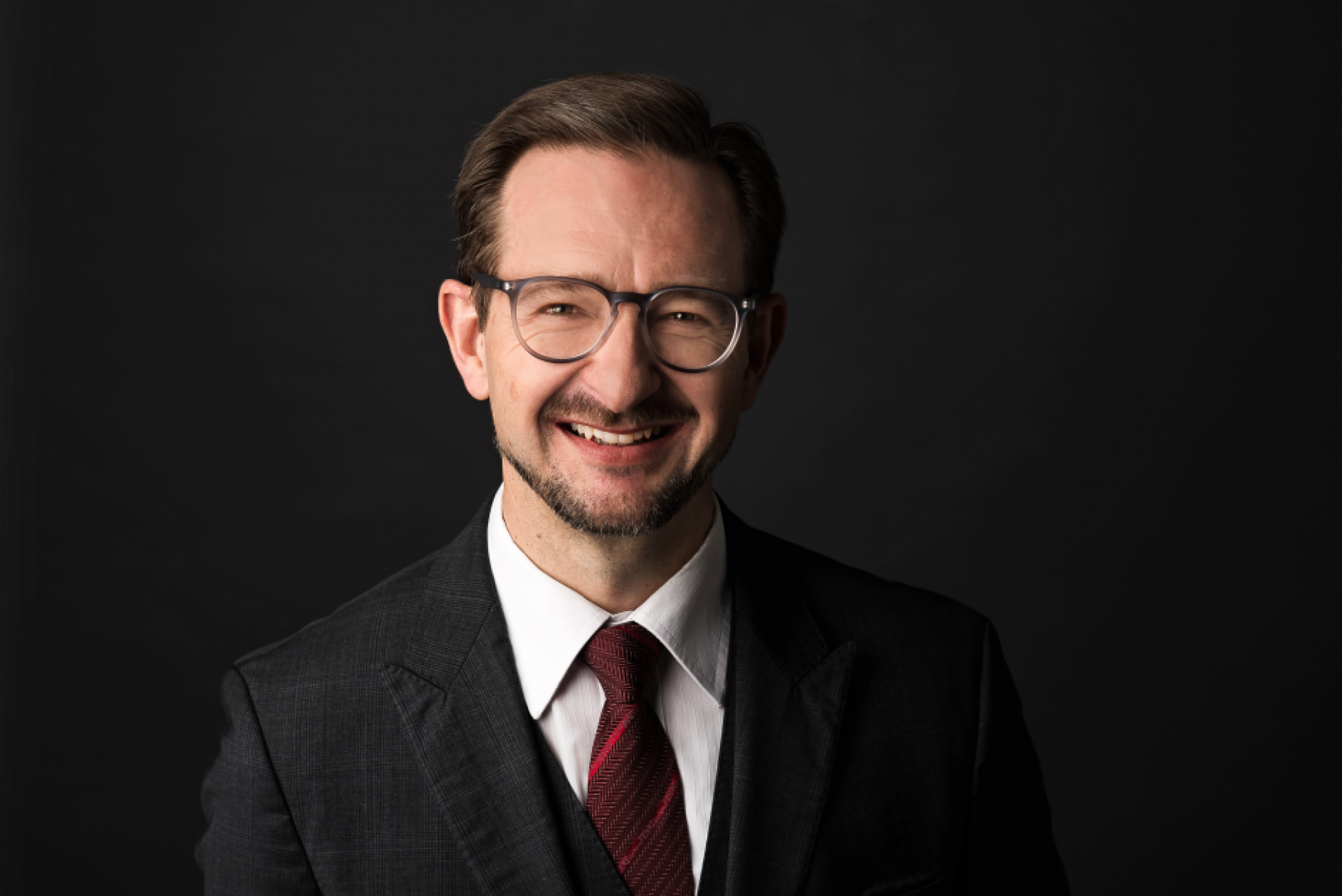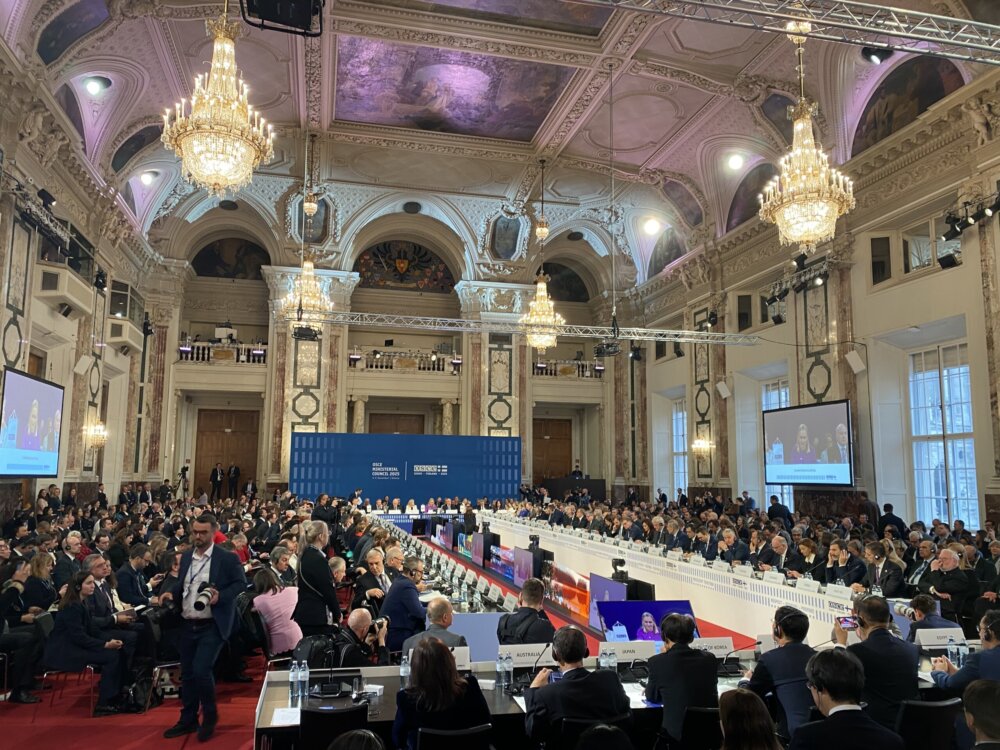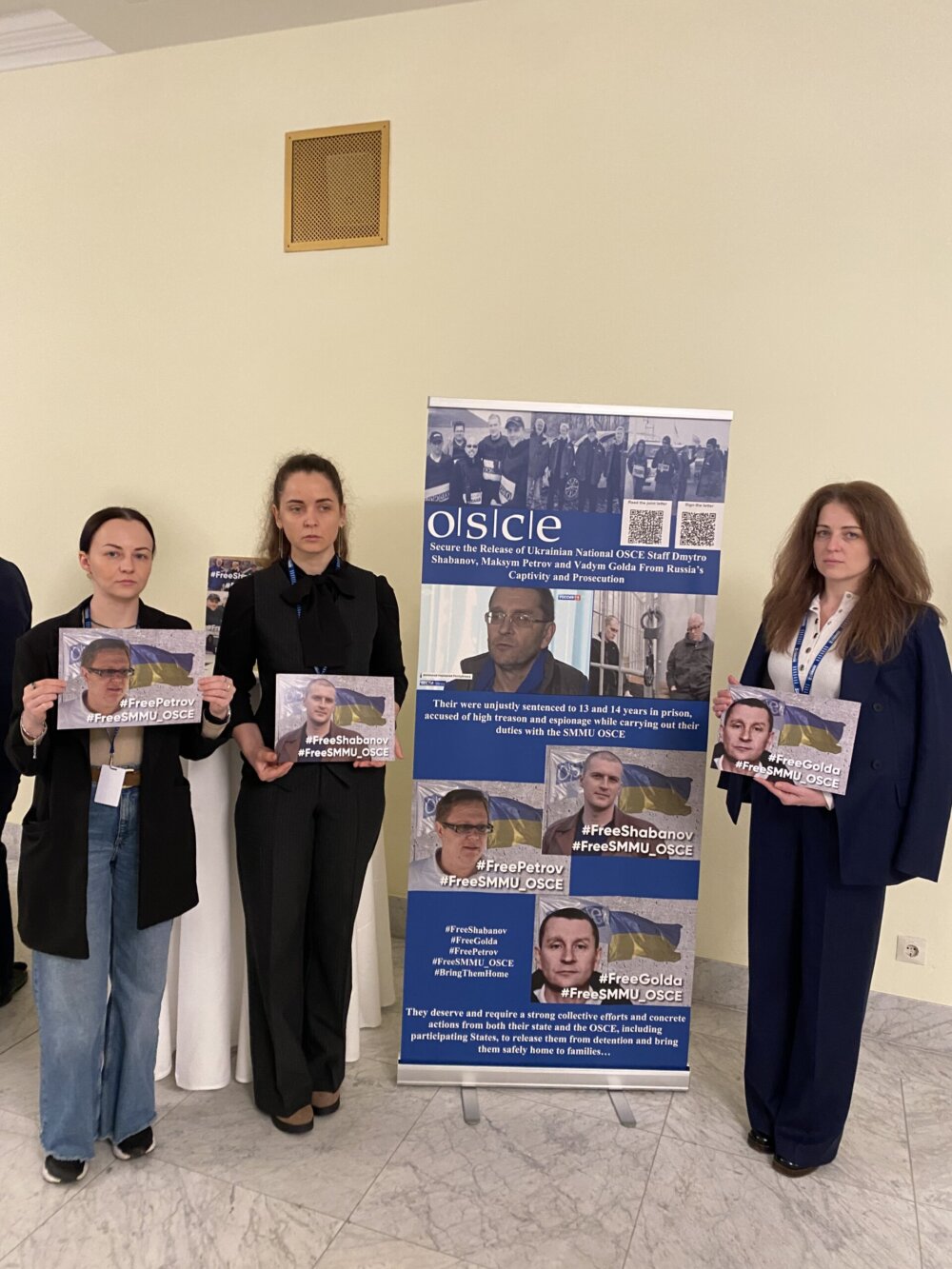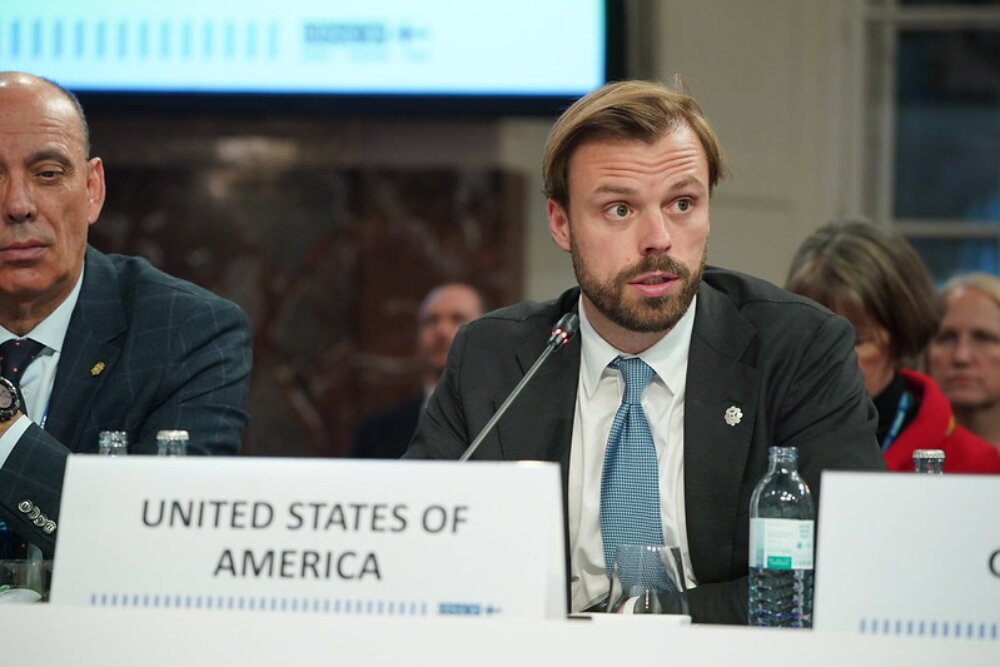Photo: EDA

New OSCE Secretary General sets out main priorities
The newly appointed OSCE Secretary General (SG), Thomas Greminger, outlined his main priorities to the media in Vienna on 4 September.
He identified the following three key areas of work: (i) making sure that the OSCE is “fit for purpose” and capable of delivering; (ii) reinvigorating a result-oriented dialogue and positioning the OSCE as the main platform for dialogue on security matters in the Euro-Atlantic and Eurasian space; (iii) and strengthening partnerships not only with regional organizations such as NATO or the European Union, but also with development agencies.
Complicated security environment
Greminger said that he was eager to work on those priorities with everyone in the OSCE. He added that the OSCE was currently operating in an “increasingly complicated security environment”. “Our common security framework which safeguards stability in our region is under threat”, he said, underlining that “a historic deficit of trust among key stakeholders in the OSCE” could be observed.
Stronger engagement by OSCE participating States
Given this complicated security environment, Greminger emphasized the need for all OSCE participating States to show more readiness to “invest in the OSCE”, politically but also financially.
On the political side, he observed a tendency to “solve problems bilaterally”. Noting that the OSCE is a multilateral forum for dialogue, Greminger stressed that the Organization should play a stronger role in addressing common challenges, and that participating States should use the Organization’s “fantastic set of tools” at their disposal.
On the financial side, Greminger recognized that the OSCE Unified Budget had been decreasing in the course of the last few years, with the exception of the budget of the OSCE Special Monitoring Mission (SMM) to Ukraine, which is financed from extra-budgetary contributions. In his view, this trend “cannot go on”. “If we want the OSCE to be fit for purpose, we need the participating States to come along resource wise,” he stressed. At the same time, he promised to make the OSCE even more efficient and to review certain procedures.
Smart division of labor
Regarding the role of the OSCE SG, Greminger said that while the SG functions as Chief Administrative Officer, “there is a trend in the last few years for the SG to become more active on the diplomatic and political front”. In order for this to work well, a “smart division of labor” between the Chairmanship and the SG had to be established. Greminger mentioned that the SG could, for example, help in “supporting diplomatic processes”, especially when they reach a stalemate. In such cases, it would be important to first find out who has better access to the parties concerned, and then establish a smart cooperation between the SG and the Chairmanship, he elaborated. In the end, this would lead to a “win-win situation” for all involved.
Strong potential for the Structured Dialogue
Greminger also addressed the current Structured Dialogue – a series of talks mostly covering military topics – established by a consensus ministerial decision at the 2016 OSCE Ministerial Council meeting in Hamburg. He underlined the “strong potential” for this dialogue, especially when it comes to addressing issues between the United States and Russia. He also observed that upcoming military exercises, such as the planned Zapad exercise by Russia, highlighted the need not only to update the 2011 Vienna Document, but also to establish additional Confidence- and Security-Building Measures. He expressed hope that the Structured Dialogue would lead to concrete outcomes in this regard.
Ukraine conflict
Greminger also referred to the Ukraine conflict and considered the OSCE’s work in the country “fundamental”, especially the work of the OSCE SMM, which helps to prevent an escalation of the conflict, as well as of the Trilateral Contact Group, which works on a lasting political solution.
Replying to a question on the possibilities for an armed OSCE mission in eastern Ukraine, he clarified that “for the time being no process is ongoing in Vienna that would aim at a change in the mandate of the SMM”. “I recall the difficulties of negotiating the mandate of the SMM in 2014”, he stated, adding that “the fact that the current mandate remains unchanged is an indication of how difficult it would be to negotiate an amendment”.
New forms of field missions
Greminger also conceded that the series of recent OSCE field mission closures in the Caucasus was “very hard to overcome”. However, he said that field missions in Central Asia had “great potential” and suggested that Central Asian host states be designated more ownership. Greminger also considered the future possibility of establishing new forms of “thematic or regional field missions”, adding that the OSCE is currently developing options in this regard.
Upcoming trips
Previous to his appointment as OSCE SG, Thomas Greminger served as the Permanent Representative of Switzerland to the OSCE from 2010 to 2015. He was also the Chair of the OSCE Permanent Council during Switzerland’s 2014 OSCE Chairmanship. During this time, he was instrumental in helping to negotiate the mandate of the OSCE SMM.
In order to show his support for the OSCE’s work in Ukraine, Greminger will travel to Ukraine in September, before attending the United Nations General Assembly Meeting in New York.



Comments
* Your email address will not be published